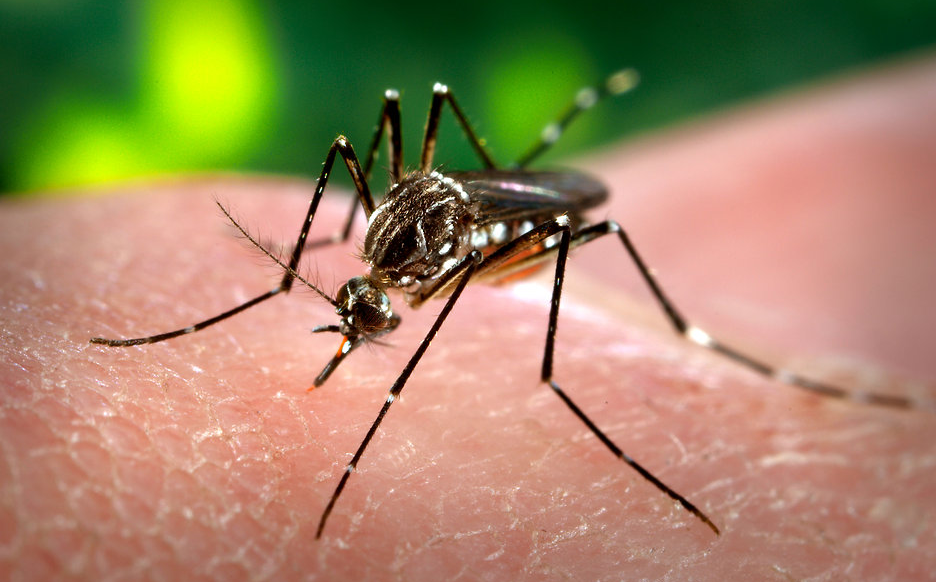A more serious and deadly malaria has been identified in the DR Congo: Are GMO mosquitoes creating new mutations?
12/19/2024 / By Lance D Johnson

- WHO identifies a severe malaria outbreak in the Democratic Republic of Congo, affecting mostly children.
- The outbreak highlights the interconnected risks of malnutrition and disease in vulnerable populations.
- Health authorities are responding with malaria treatment and support from the WHO.
- The use of genetically modified mosquitoes in malaria control efforts raises complex and potentially perilous questions.
Central Africa now seeing more serious malaria cases than ever before
In a recent announcement, the Democratic Republic of Congo’s (DRC) Health Ministry revealed that a mysterious illness in the southwestern Kwango province was, in fact, a severe form of malaria. This revelation comes after the unexplained deaths of 143 people, mostly children, in the Panzi health zone. The outbreak, which saw 592 reported cases with a 6.2% fatality rate, is a stark reminder of the ongoing threat malaria poses in Africa, particularly in regions grappling with malnutrition and poor healthcare access.
The identification of malaria as the cause of the outbreak brings to the fore the ongoing efforts to combat this deadly disease, which claims approximately 600,000 lives annually, with the majority of cases in Africa. The World Health Organization has sent a team of experts to assist with managing the outbreak and providing essential malaria treatments. Only about 30% of the population lives within five kilometers of the nearest health facility.
Treatment options for malaria in the DRC:
- Malaria tests and drugs are free for all age groups.
- Confirmatory diagnostic testing with RDTs or microscopy is required before treatment.
- Treatment options for uncomplicated malaria are:
- Artesunate-amodiaquine (ASAQ)
- Artemether-lumefantrine (AL)
- Artesunate-pyronaridine (AS-PYR)
- Treatment for severe malaria:
- Injectable artesunate is the first-line treatment.
- For at least 24 hours or until the patient can tolerate oral medication.
- Follow-up with an artemisinin-based combination therapy (ACT) such as ASAQ, AL, or PA for 3 days.
- Alternative treatments if injectable artesunate is not available:
- Artemether (intramuscular)
- Quinine infusion
Are GMO mosquito experiments causing mutations in the parasite that causes malaria?
In the face of such persistent challenges, a growing question emerges: Can genetic modifications to mosquito populations offer a viable solution to controlling malaria in Africa? The development and release of genetically modified (GMO) mosquitoes, designed to reduce the spread of malaria, has sparked both hope and concern among health experts and environmentalists alike.
The use of GMO mosquitoes, which are typically engineered to carry genes that inhibit their ability to spread the Plasmodium parasite that causes malaria, has shown initial promise in reducing malaria transmission rates. In recent years, trials in countries like Brazil and the United States have demonstrated a significant decrease in mosquito populations carrying malaria-causing parasites. The Bill and Melinda Gates Foundation has funded numerous GMO mosquito trials globally, most recently through their “Gene Drive Research” program. The establishment of Oxitec, a biotechnology company, has allowed for rapid development and testing of genetically modified mosquitoes to combat vector-borne diseases.
But the potential risks of genetically altering mosquito populations are vast. One primary concern is the possibility of unintended consequences, including mutations in the bacteria that cause severe forms of malaria. Could the introduction of GMO mosquitoes lead to more virulent strains of the parasite, making current malaria control strategies obsolete?
Moreover, the long-term ecological impact of GMO mosquitoes remains unknown. Could these genetically modified creatures out-compete or interbreed with native mosquito populations, leading to unforeseen changes in the local ecosystem? What are the potential consequences for other species that depend on these insects for food or pollination?
While the WHO and other health organizations are working tirelessly to combat malaria through conventional and other experimental means, the debate over GMO mosquitoes must take place. As we grapple with the severe impact of malaria on communities in Africa, the question remains: Are genetic modifications to mosquito populations a step towards a malaria-free future, or are we setting the stage for mutations and new and unforeseen health crises?
Sources Include:
Submit a correction >>
Tagged Under:
bill gates, biotechnology, chaos, Ecology, environment, genetic lunacy, GMO mosquitoes, healthcare access, insanity, Malaria, malnutrition, medical experiments, mutations, outbreak, pandemic, panic, parasitic infections, plague, science deception, science fraud, serious malaria cases, WHO
This article may contain statements that reflect the opinion of the author
RECENT NEWS & ARTICLES
HealthScience.News is a fact-based public education website published by Health Science News Features, LLC.
All content copyright © 2018 by Health Science News Features, LLC.
Contact Us with Tips or Corrections
All trademarks, registered trademarks and servicemarks mentioned on this site are the property of their respective owners.




















